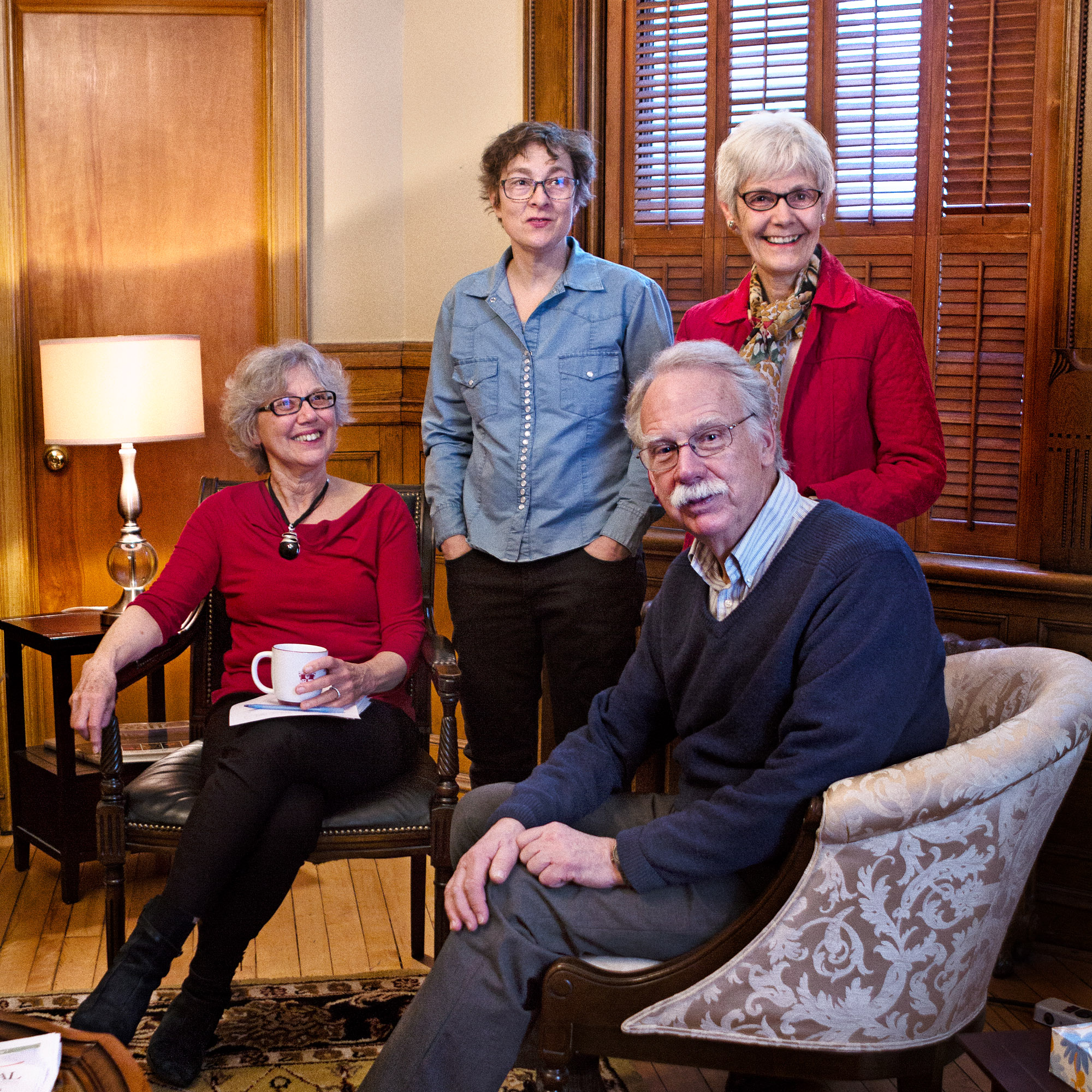Left to right:
Maria Rigby Refugee Assistance Program | Ottawa Mennonite Church
Lisa Hébert Coordinator | Capital Rainbow Refuge
Don Smith Chair | Refugee Ministry Working Group | Anglican Diocese
Norma McCord United Church of Canada | Refugee Advisory Group
—
A proud history of private sponsorship
In the fall of 2015, it often felt as if the entire city of Ottawa was involved in the private sponsorship of refugees. Neighbours, co-workers, friends and faith communities were forming groups across the city every week as residents seized on Canada’s private sponsorship program as a way for ordinary citizens to play their part in addressing the global refugee crisis”.
Interest in refugee sponsorship hadn’t been that high since the sponsorship program’s origins in the South East Asian crisis. In 1979, Canada decided to resettle 8,000 refugees from Vietnam, Cambodia and Laos. Marion Dewar, the mayor of Ottawa, pledged to open Ottawa’s doors to half of those people and Project 4,000 was born. Led by Mayor Dewar and the city’s churches, 298 private sponsor groups had welcomed and resettled every one within a year.
Since then, faith groups have been the backbone of Canada’s private sponsorship program, continuing to settle refugees from around the world despite a frustratingly slow process and declining interest from the wider community. Many churches facilitated private sponsorships through their sponsorship agreements with the government, mainly for groups drawn from their own congregations. Every year the Coalition for Refugees in Ottawa (COR), a group of refugee advocates and church volunteers, held workshops and vigils to interest more people in sponsorship, but it was a tough sell.
Fast-forward to 2015, when the Syrian crisis leapt to the front pages, public interest in private sponsorship skyrocketed and many turned to the churches for leadership.
In 2014, about 12 United Church congregations were involved in refugee settlement. In 2016, that number grew to 40.
“I felt a bit overwhelmed, but in a wonderful way,” says Norma McCord, of the Refugee Advisory Group at the United Church of Canada and COR. Information sessions were packed, and in some cases standing-room only. Locations were hastily changed and sessions added.
Lisa Hébert is the Coordinator of Capital Rainbow Refuge, a volunteer organization that’s committed to providing safe haven to sexual minority refugees. “Because our LGBTQ group organized a few years before this crisis, we were well positioned to jump in and help out with training,” says Lisa, one of several COR members who collaborated with Refugee 613 to produce Sponsorship 101 and 201, a series of workshops across the city that trained more than 600 sponsors.
Training continues to be important, as some novice sponsors struggle to find the balance between meeting the needs of the newcomers and empowering them to build independent lives. But from the beginning, the hard work reaped unexpected dividends. “At one of the workshops an Imam came up to me and said he was going to work with his congregation to be more welcoming to LGBTQ people,” says Lisa.
“It’s become a multi-faith and a no-faith movement.”
The sudden surge in interest led the churches to expand beyond their own congregations to support lay groups in the community. “It’s become a multi-faith and a no-faith movement,” says Don Smith, who is chair of the Refugee Ministry Working Group at the Anglican Diocese. “The demand exploded, and we now have 70 groups sponsoring. They’ve landed 244 refugees since September 2015. That’s incredible.”
Maria Rigby, part of the Refugee Assistance Program at the Ottawa Mennonite Church, says people in her neighbourhood raised $30,000 just by going door to door asking for donations on New Year’s Eve 2015. “Even more importantly, we met so many people that night who were also involved in different sponsorships. It felt like the whole community was coming together to be welcoming.”
“You’re privileged to be there for the long haul.”
“As a whole, the Syrian refugee crisis has put a face on the need for sponsorship in a way that we have not been able to in the past,” says Norma. Her reality check for new sponsors? “You need to understand that this is a long-term commitment. You are responsible financially and socially to help people settle for a year. It’s not something that you take on as a ‘do good’ project. You’re privileged to be there for the long haul.”
“The families that arrive are so individual. We have no way to say ‘a family will be like this’. Some are very independent, and can settle in quickly, and support themselves in a year, some have more challenges. You just don’t know what to expect,” adds Norma.
A proud future for sponsorship
“People are always thanking me. And it isn’t me to be thanked, because it’s the community that’s doing all this,” says Norma. “It has brought together neighbourhoods. People who would never have met became good friends working on a common purpose. We are more at home with each other, and we get to see some of our foibles as well as some of our fine points.”
“I hope that we won’t lose the momentum, and that we realize how much we gain from the people who arrive. The experience of meeting new people and seeing our community through new eyes is of huge benefit for everyone.”
—
For an overview of private sponsorship and to learn more about key players in Ottawa visit the Refugee 613 sponsorship page here.
Capital Rainbow Refuge continues to encourage and mentor new sponsorship groups for LGBTQ refugees. Learn work about their history and work here.





